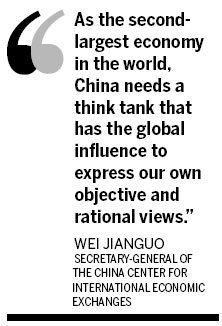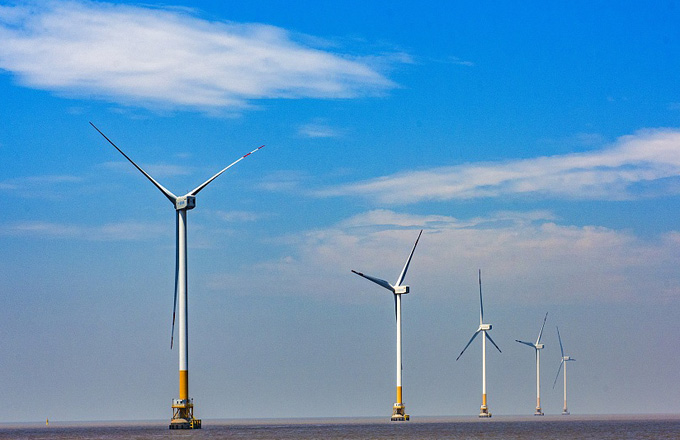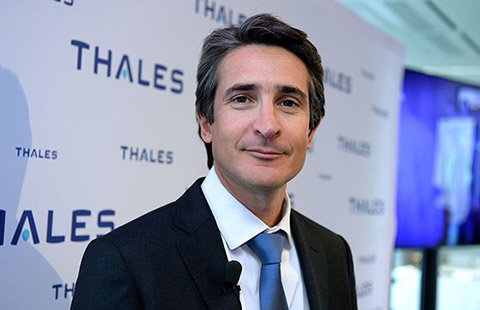Global challenges dominate summit agenda
Participants to discuss trends affecting the world's economy and political structure
The world's economic and political development challenges and new cooperation mechanisms will be on the agenda when politicians and scholars gather at the Global Think Tank Summit in Beijing on Friday.
It will be the third time that the China Center for International Economic Exchanges, or CCIEE, a top government think tank, hosts the biennial summit, with the theme of New Patterns, New Cooperation and New Development.
Wei Jianguo, secretary-general of the CCIEE, said that "the global economic recovery remains weak, and the economic governance structure that resulted in the financial crisis has not yet been readjusted".
As the structural contradictions persist, think tanks in different countries should jointly provide ideas to solve the problems, Wei said.
During the two-day summit, participants will discuss changes and trends affecting the global economy and political structure, new engines for China's growth and the adjustment of international relations.
After the global financial tsunami, formulating economic policies that benefit one country by hurting others is not sustainable, given deepening globalization, the CCIEE secretary-general said.
"The summit is an independent and professional platform for different countries to communicate and coordinate economic and political policies," Wei said.
"As the second-largest economy in the world, China needs a think tank that has the global influence to express our own objective and rational views," he added.
The second Global Think Tank Summit focused on the common responsibility of global economic governance. The first, which was hosted in July 2009, suggested measures to cope with the financial crisis based on international cooperation.
The world's economic recovery still faces uncertainties, which adds pressure on the development of emerging markets, analysts said.

Speculation about the possible timing and pace of the United States Federal Reserve's exit strategy from its quantitative easing program has taken the headlines recently, said Ricard Torne, a senior economist with FocusEconomics, a provider of economic consensus forecasts for more than 70 countries.
According to Federal Reserve Chairman Ben Bernanke, the Fed may start tapering the QE program later this year, as "the downside risks to the outlook for the economy and the labor market have diminished since the fall", Torne said.
A market view from the Intelligence Unit of The Economist, a think tank, said that capital has been flowing out of emerging markets since several months ago, as investors speculated the Fed will decrease bond purchases.
"The global capital market may see more sharp fluctuations, and emerging markets will sharply increase their financing demand under the pressure of capital outflows," said Liu Qian, deputy director of the China forecasting service at the think tank.



















